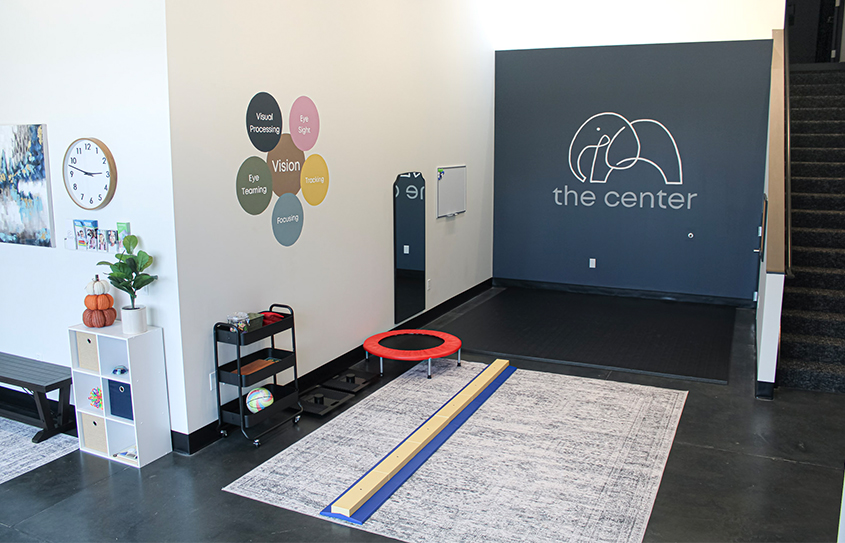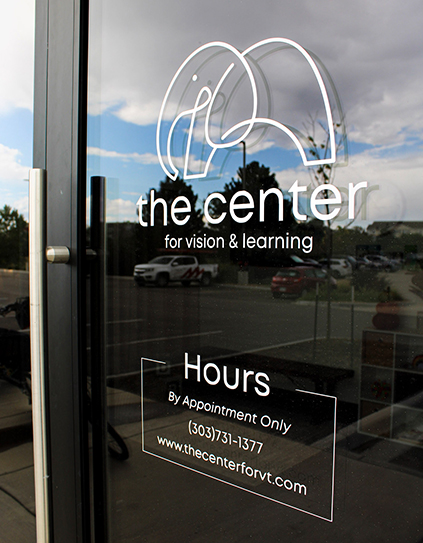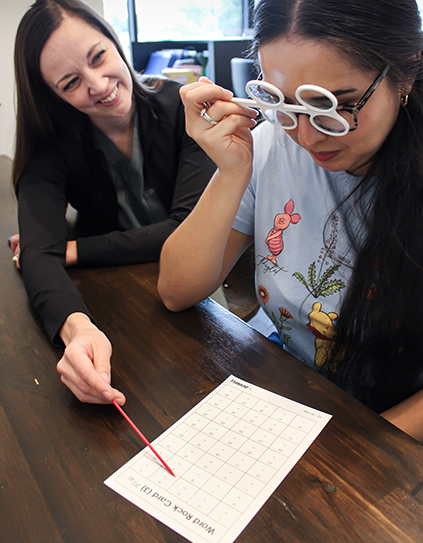We work directly with our affiliate clinic, The Center for Vision and Learning, to provide patients with vision therapy when needed. Frequently asked questions about vision therapy are included below, and for more information please visit our vision therapy website at: www.thecenterforvt.com, or call our office at (303)532-1132.
Frequently Asked Questions:



What is vision therapy?
Vision therapy is an individualized treatment program designed to correct a variety of vision problems such as lazy eye, tracking problems, or visual processing disorders. Simply put, vision therapy is a lot like physical therapy or occupational therapy specifically for your eyes!
Who can benefit from vision therapy?
- Eye tracking or focusing problems
- Strabismus (eye turn)
- Amblyopia (“lazy eye”)
- Convergence insufficiency
- Visual processing disorders
- Sports vision enhancement
- Reading or learning difficulties related to visual function
- Brain injury- related vision problems (post-concussion vision syndrome, etc.)
Is vision therapy just for children?
No! While vision therapy is often prescribed for children, adults can also benefit—especially if they have unresolved visual issues or experience symptoms like eyestrain, headaches, or double vision.
How is vision therapy different from eye exercises found online?
Vision therapy is customized and guided by an optometrist trained in developmental or behavioral optometry. It involves targeted activities based on a comprehensive vision evaluation—not just generic exercises.
How long does vision therapy take?
The length of treatment varies depending on the individual and the nature of the visual issues. A typical program may range from a few months to a year, with weekly sessions and at-home exercises.
Prior to starting a vision therapy program, your doctor will review the expectations for the length of the program.
Does vision therapy really work?
Yes! When conducted under professional supervision and with patient commitment, research and clinical results show that vision therapy can significantly improve visual function and comfort.
Is vision therapy covered by insurance?
In general, vision therapy is not typically covered by insurance. In some specific cases, insurance will cover a portion of the therapy program; however, we do not bill insurance directly. We would be happy to assist you in the process of seeking reimbursement from your insurance, and we recommend checking with your carrier for further details regarding any possible coverage.
Can vision therapy help with reading or learning problems?
Yes! If visual deficiencies are contributing to reading or learning challenges, then vision therapy can help by improving visual tracking, eye teaming, and focus—all critical for effective reading and comprehension!
What happens during a typical vision therapy session?
Sessions typically include guided visual activities using specialized equipment such as lenses, prisms, filters, and computer programs. Activities are tailored to build specific visual skills and integrated into real-life tasks.
How long do the results of vision therapy last?
The visual skills acquired during vision therapy are typically permanent, although this can depend on each specific case. As we train the visual system, we reinforce the neural pathways that create long-lasting changes!In addition to that text, I would like to add a few pictures of the vision therapy office, which I will attach to this email.




